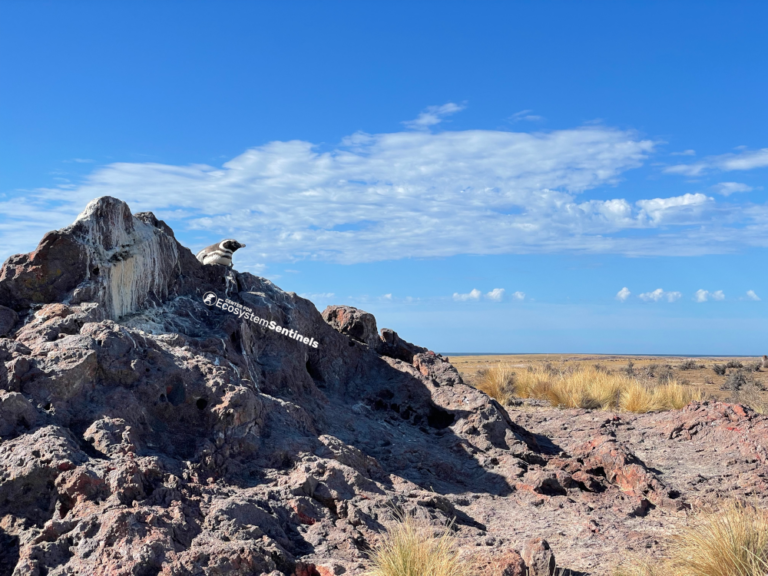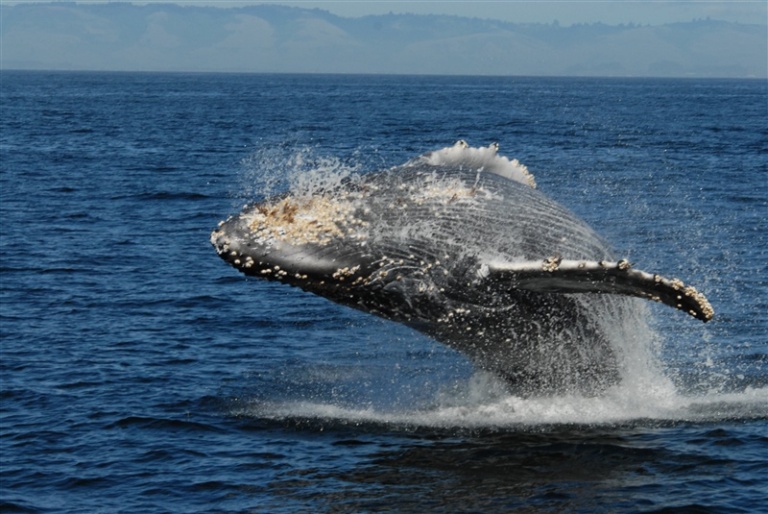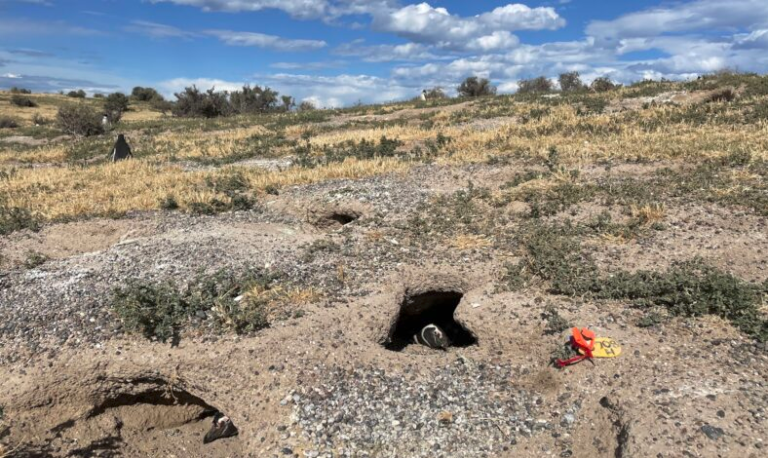Written by Dr. Kasim Rafiq
In June 2024, postdoctoral researcher Dr. Kasim Rafiq and PhD candidate Leigh West from Dr. Briana Abrahms‘ lab returned to Wild Dog Camp in the Okavango Delta and were joined by Briana’s new PhD student Marie-Pier Poulin. The team successfully deployed six new tracking collars on African wild dogs, including in two brand new packs, and added four new collars to lions in the region. One of the more challenging deployments involved the elusive Release Pack, which was denning four hours from camp and deep into 4 km of dense mopane woodland. The terrain was so thick that the pack had to be initially located by triangulating an old collar signal from a small-winged plane before the team could track them in their trusty land rovers.
The team also collected collars deployed during the previous field season and retrieved over 5,000 GPS tracking points, more than 1,000 hours of audio from collar microphones, and over 4 billion accelerometer data points, capturing the fine-scale movements and behaviors of both wild dogs and lions over the past twelve months. This data is critical for ongoing research into the impacts of climate change on large predator behavior and how these changes affect species survival and human-wildlife interactions.
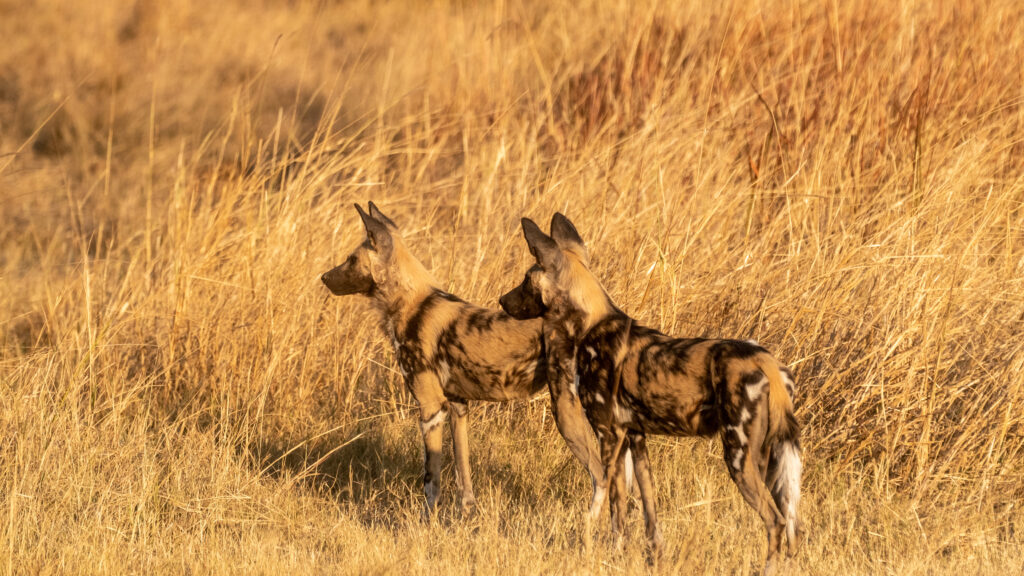
Photo credit: David Bessenhoffer 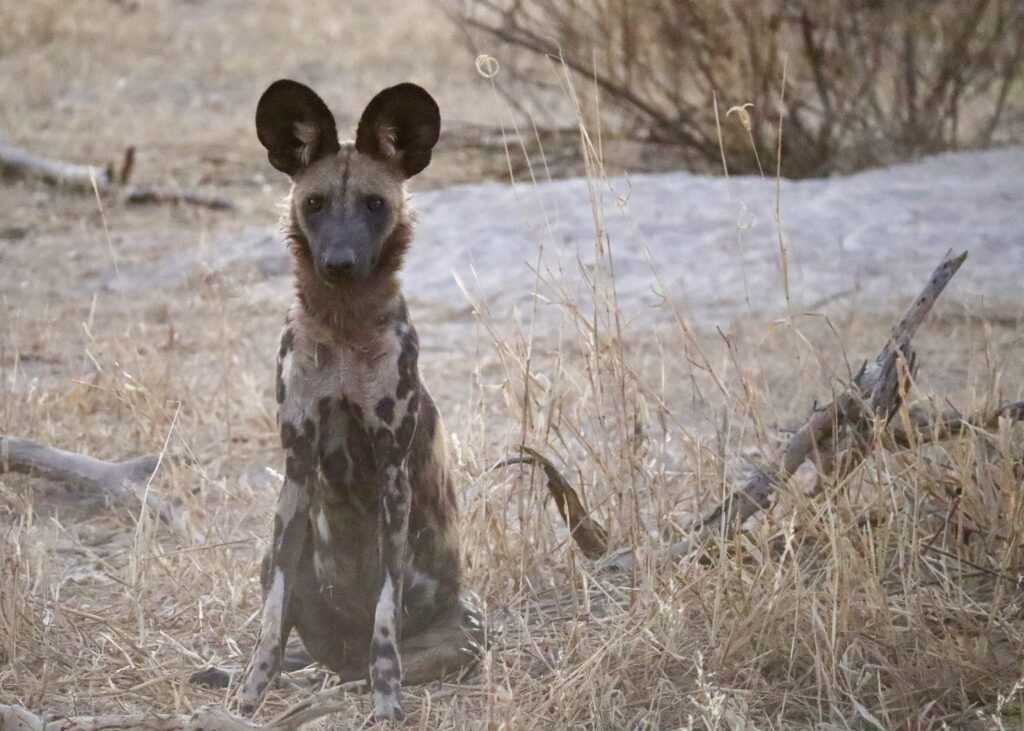
Photo credit: Leigh West 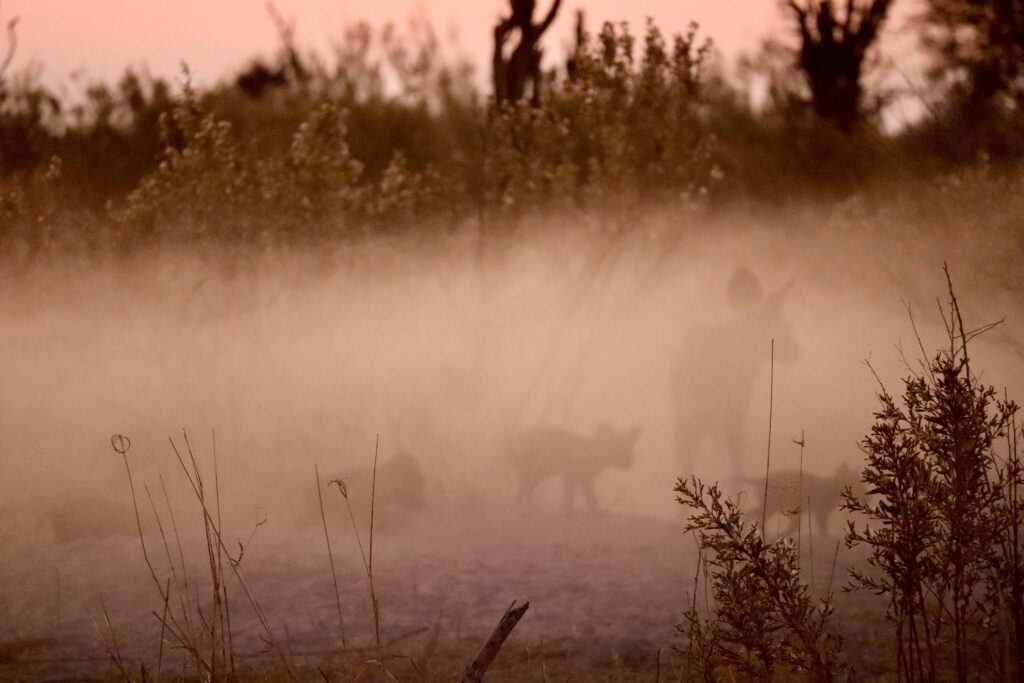
Photo credit: Leigh West 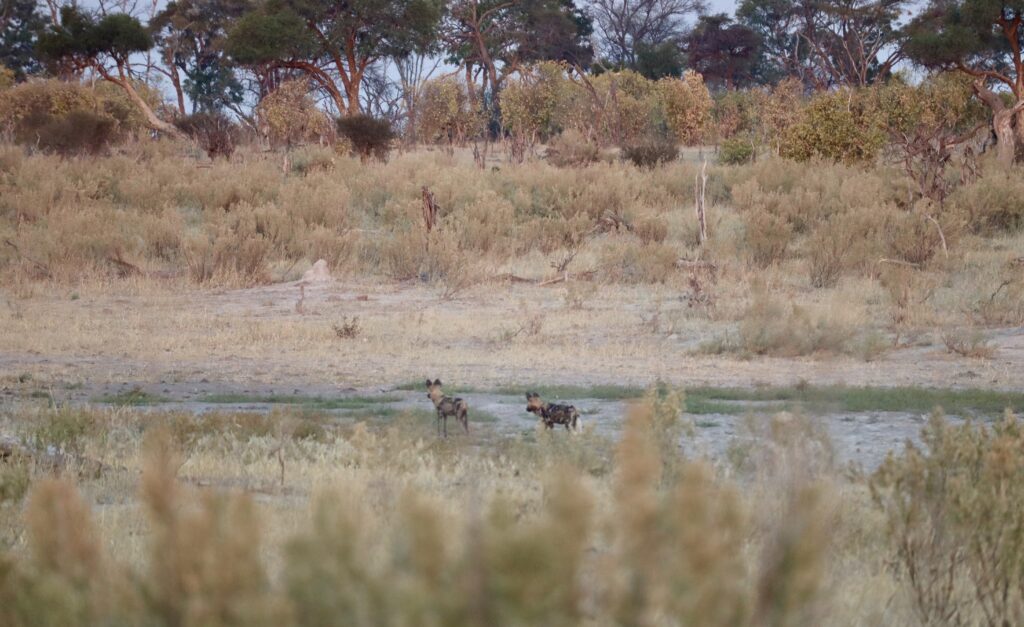
Photo credit: Leigh West
